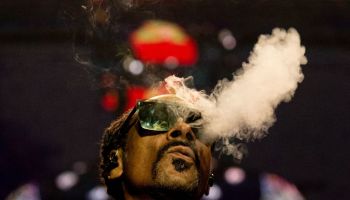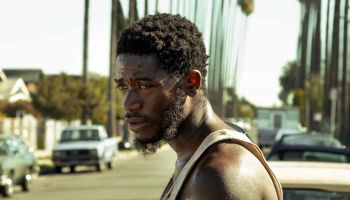According to its founder, Dr. Maulana Karenga, Kwanzaa is an African American and Pan-African holiday which celebrates family, community and culture.
Dr. Karenga started Kwanzaa in the midst of the Black Liberation Movement in 1960s. It has since been celebrated every year from December 26 – January 1.
The name Kwanzaa is said to be derived from the phrase ‘matunda ya kwanza’ which means ‘first fruits’ in Swahili. Dating back to the times of Ancient Egypt, we’re told that our ancestors held many first harvest celebrations.
The founder notes in one of his past writings that, “Kwanzaa is a cultural holiday, not a religious one, thus available to and practiced by Africans of all religious faiths who come together based on the rich, ancient and varied common ground of their Africanness.”
He is also notes that, “Kwanzaa was not created to give people an alternative to their own religion or religious holiday.’
Dr. Karenga had three desires when starting Kwanzaa. To reaffirm and restore our rootedness in African culture; to serve as a regular communal celebration to reaffirm and reinforce the bonds between us as a people; and to introduce and reinforce the Nguzo Saba, which means “The Seven Principles or Values” in Swahili.
The Seven Principles are:
Umoja (Unity): To strive for and to maintain unity in the family, community, nation, and race.
Kujichagulia (Self-Determination): To define ourselves, name ourselves, create for ourselves, and speak for ourselves.
Ujima (Collective Work and Responsibility): To build and maintain our community together and solve our problems together.
Ujamaa (Cooperative Economics): To build and maintain our own stores, shops, and other businesses and to profit from them together.
Nia (Purpose): To make our collective vocation the building and developing of our community in order to restore our people to their traditional greatness.
Kuumba (Creativity): To do always as much as we can, in the way we can, in order to leave our community more beautiful and beneficial than we inherited it.
Imani (Faith): To believe with all our heart in our people, our parents, our teachers, our leaders, and the righteousness and victory of our struggle.
During the week-long celebration, each day is highlighted by one of the principles. If you attend a celebration in the community, you may see decorations such as a candle holder with seven candles, corn, African baskets, beautiful cloth patterns, communal cups to pour libations, and the red, black and green flag. When giving gifts during Kwanzaa, its encouraged that it includes a book.
You will be greeted by someone saying “Habari Gani?” which is Swahili for “What’s The News?” The response would be whatever the principle of that day is.
I was first introduced to Kwanzaa in high school and it has always been a joyous experience to attend the various programs to close out the year. Someone always expressed the importance of us practicing the Seven Principles the other 51 weeks of the year and to not let the spirit and sense of family, community and culture die on the morning of January 2.
I believe these are principles
















